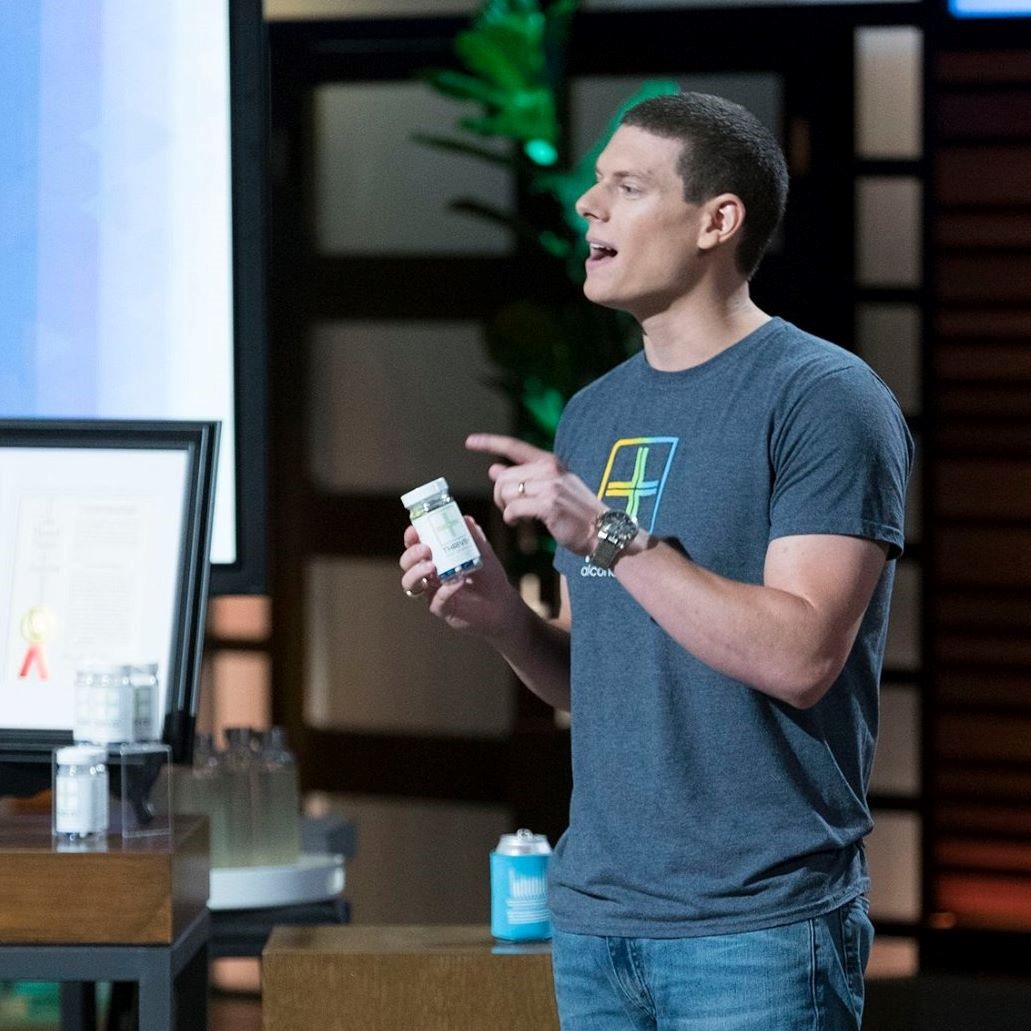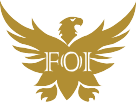
Q&A with Brooks Powell of Cheers®
Founder and CEO
Principal Series:
Cheers is a CPG brand focused on the emerging consumer health category of “alcohol-related health”. Cheers has four unique products ranging from a daily liver supplement called Cheers Protect to a next-day OTC pain relief effervescent called Cheers Relief. In terms of vision, Cheers is looking become the “Emergen-C of the alcohol industry”.
The brand’s hero product, Cheers Restore, is a dose of three capsules taken after your last alcoholic beverage or before going to bed. In a human study conducted for the granted patent on Cheers Restore, users of Cheers Restore felt an average of fifty percentage points better the next day. If a customer doesn’t feel at least this much better the next day, Cheers will refund their money—no questions asked and no need to send anything back.
Cheers has an annualized revenue runrate of $10m in online sales using a six-month lookback window and is profitable. The company boasts over 200,000 customers and has sold over six million doses. Cheers has been featured on Shark Tank, The Washington Post, BuzzFeed, Inc. Magazine, and more
Cheers’ products work primarily through the usage of Dihydromyricetin (DHM), an extracted organic compound (similar to how caffeine is to coffee or THC is to marijuana) that was discovered to have anti-alcohol related properties in 2012 through an article in The Journal of Neuroscience. DHM has two primary effects that work to reduce hangovers and alcohol’s other negative effects: 1) DHM reduces short-term alcohol withdrawal and 2) DHM reduces acetaldehyde levels. In addition to dehydration, these are the two main reasons someone doesn’t feel well the day following alcohol consumption.
Cheers boasts two Princeton University biotech professors as equity holding advisors to the company. Because DHM suffers from a poor bioavailability (meaning very little of the drug gets absorbed into the bloodstream to have an effect), Cheers began sponsored research with Princeton University to create a drug delivery system for DHM to increase this bioavailability. Cheers is a co-inventor with Princeton on the discovery of a permeabilizer technology, that when co-administered in a capsule with DHM, increased the functional bioavailability of the DHM in a capsule by as much as 6.33x. In other words, a single capsule using our permeabilizer technology had delivered the equivalent of over six capsules in animal studies.
In 2020, Cheers will be focused on 1) expanding into key physical retailers (in addition to increasing online sales) and 2) proving the safety of its DHM permeabilizer technology and implementing it into its products—increasing the not only the products’ efficacy, but also the company’s competitive advantage.

Family Office Insights is a voluntary, “opt-in” collaborative peer-to-peer community of single family offices, qualified investors and institutional investors. Join the community here www.familyofficeinsights.com
Alcohol isn’t new, why has no one tried to make a hangover cure before?
For as long as people have been drinking alcohol (at least 4,500 years), people have experienced its negative effects—most commonly and frequently in the form of hangovers. There have been no shortages in attempts to cure them—in fact, when we were filing our first patent, we found over 100+ American products that had tried since the beginning of the internet—most of which never even got off the ground.
As far as effective hangover cures go… the only real options you had were 1) time, 2) pain-relievers, 3) more alcohol (e.g., Bloody Mary), or some combination thereof.
This all changed in 2012 with the discovery of DHM and its ability to reduce short-term alcohol withdrawal and decrease exposure to acetaldehyde. With DHM, there’s now a way to prevent a hangover before they even start. Startups using DHM have already raised $10m+. Pure DHM is effective but suffers from a poor bioavailability of only 5%. Through utilizing a permeabilizer technology we developed with Princeton, we will be able to significantly increase bioavailability and thereby get both better efficacy and yet also in a smaller pill format—making the product have more mass appeal.
Why is the timing right for Cheers®?
The American CPG landscape is going through very interesting changes, and the alcohol industry isn’t isolated. Over the past few years we have seen the shrinking of mega-brands such as Coca-Cola, Pepsi, and Dr. Pepper… and yet we have also seen the meteoric rise of healthier alternatives such a Bai Brands—so much so that the Dr. Pepper Snapple Group recently purchased Bai Brands in 2016 for $1.7b after only seven years in business.
It doesn’t take a genius to predict this trend of people caring about their health and what they put into their bodies would begin permeating other markets ranging from shampoo (see Jessica Alba’s Honest Company) to alcohol (see White Claw). Just as Bai did to soda, spiked seltzers are doing to alcohol. Dave Burwick, CEO of Boston Beer Co. recently said: “Hard seltzer is arguably the most disruptive entrant into the alcohol category since light beer in the 1970s.” In 2017, hard seltzer sales were $181m. 2018 they were $488m. And by Q4 2019, hard seltzers were projected to pass the $1b mark for the 2019 calendar year.
Alcohol is not going anywhere. Rather, its consumption styles will change as people begin to care more about their health in relation to it. In the same way that hard seltzers have ridden on the tide of Americans’ switch from sodas to waters (e.g., Bai, La Croix, etc.), Cheers and other alcohol-related health companies are beginning to grow on the tide of Americans’ switch from other alcoholic offerings to healthier hard seltzer alternatives.
Hard seltzers are paving the way for the intersection of “alcohol” and “health” in the American psyche. Prior to a few years ago, “alcohol health” would be considered an oxymoron no different than “jumbo shrimp”. Now it’s a bona-fide category with $25-50m in sales between the two to three category leaders. Cheers is ready to give people products designed to reduce the negative effects of alcohol itself, not just the additives in alcoholic beverages—which is something a hard seltzer can’t do.
In Korea, where this trend started a few years earlier, the hangover cure/alcohol-related health market is $165m, or 1.4% of their total annual alcohol sales. If this 1.4% were to be applied domestically to the US’ $253b in annual alcohol sales, that could mean a potential market size of $3.3b.
The hangover cure/alcohol-related health category is great. But, why pick Cheers® out of the other options?
In terms of Cheers’ main competition in the space, there are two other VC-backed companies. 1) More Labs and 2) Zbiotics.
Focus:
More Labs isn’t just focused on alcohol and is building products ranging from a focus supplement (“Liquid Focus”) to a sleep supplement (name TBD). We believe that this lack of focus in product category reduces their brand equity within the alcohol category.
Zbiotics isn’t just focused on alcohol-related problems either. They soon plan to use their probiotics in other applications such as lactose intolerance, lead poisoning, radiation, and even B2B applications such as pesticide reduction.
We believe to become a successful brand that a very clear value proposition and mindshare must be established. Just like “Emergen-C” is to immunity health, we want to be to “alcohol-related health”. Cheers is the brand in alcohol-related health. We believe this very conscious choice to focus on one category will pay large dividends in the long run.
Positioning:
Most of Cheers’ competitors are positioned towards binge drinking episodes, rather than being flexible enough to be used even when someone drinks a moderate amount. For example, a dose More Labs’ Morning Recovery costs $6 and a dose of Zbiotics acetaldehyde shot costs $12. Besides branding towards binge drinking (especially the case for More Labs), this high price point forces people to only use the product on special occasions (such as a trip to Vegas or NYE) and not regularly.
Cheers is priced at ~$3 a dose and is designed to be used any time you consume alcohol—whether its two drinks or six. Rather than being saved up for special occasions, Cheers can be used any time you drink, such as a regular Friday night where you have 2-4 drinks. This significantly increases the frequency that our product can be used, and therefore increases the LTV of each customer.
Rather than being positioned towards binge drinking, Cheers is positioned towards “fun, responsible, and health-conscious alcohol consumption”.
Technology:
More Labs uses DHM, but only includes 300mg per $6 bottle of 3.4oz. They use DHM solubilizing technology, however, our in-vivo studies actually revealed that increased DHM solubility significantly reduced total DHM bioavailability. The only benefit is that they could increase their DHM per bottle from ~100-300mg. For context, a current dose of Cheers has 1,200mg of DHM.
Zbiotics uses genetically modified probiotics to break down various substances. Their first application is for breaking down acetaldehyde in the gut. While the probiotic technology is very interesting, its alcohol application is not. Acetaldehyde in the gut has shown no significance to hangovers or crossover to blood acetaldehyde levels—and only blood acetaldehyde matters. Expect this company to company to come out with really compelling, non-alcohol applications in the future and shift their focus towards them.
Cheers has the only technology shown to increase the bioavailability of DHM. This will give us significantly increased customer satisfaction, mass appeal, and a competitive advantage over what competitors can produce.
Why is now a good time to invest into Cheers®?
The next two years are going to be really exciting. If 2018 & 2019 were dominated by our growth in online sales (from nothing to $10m in annualized revenue at breakeven economics), then 2020 & 2021 will be dominated by our expansion into major retail channels.
Retail has always been the dream for Cheers, however, we felt that online sales were the low hanging fruit that could help us drive those retail conversations. Online sales went so well for us that we decided to keep focusing on it until we could solidify those channels and regain the bandwidth necessary to start retail expansion.
We have learned from other companies that getting into retail not only increases revenue through the expansion into new channels, but that it actually increases marketing efficiency in existing channels. For example, Liquid IV has always been sold online, but in 2019 got into all of Costco accounts nationwide and in prominent merchandising placement. That retail exposure made the company’s online sales begin to explode again. So not only did they benefit from retail sales, but their retail presence boosted their online sales, and vice versa.
After six years in business, in 2019 Liquid IV crossed the $100m revenue mark despite only having $10m in total external equity funding. Cheers wants to have a similar story.

Brooks Powell of Cheers®
Brooks Powell of Cheers®
Brooks Powell is a graduate of Princeton University (’17) where he first started Cheers (formerly called Thrive+). Brooks earned the Tiger Entrepreneur Award (the highest award that an alumnus within 5 years of graduating can earn). Brooks completed a certificate program in entrepreneurship (the equivalent of a minor) and participated in Princeton’s Summer eLab Accelerator Program in both 2016 & 2017. While at Princeton, Brooks wrote a 100+ page junior paper (similar to a thesis) on “A Biblical Theology of Man’s Relationship to Matter: Using Alcohol as a Case Study Within the Biblical Narrative” and later gave a TEDxPrincetonU talk on “Taming Alcohol’s Dark Side”—which discussed the intersection of alcohol ethics and his brand of DHM-based products. Two years since graduating, Brooks has built Cheers into a $10m annual revenue business and partnered with Princeton and two equity holding Princeton biotech professors through sponsored research agreements (SRAs) to increase the bioavailability of DHM. Today, Brooks is listed as a co-inventor with various Princeton professors and post-docs on multiple licensable bioavailability patents.
Contact: brooks@cheershealth.com (CEO) & seth@cheershealth.com (Director of Finance & Operations)

